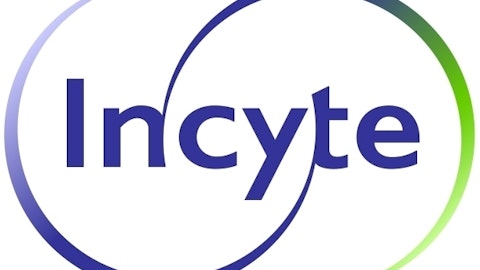Peregrine Pharmaceuticals (NASDAQ:PPHM), a developmental stage biotech focusing on oncology treatments, recently announced that its lead drug candidate, bavituximab, was heading to phase 3 trials. This is a major positive catalyst for the company, which fell off a cliff last September after a major blunder with its phase 2 trial discredited some incredible results. Investors had doubted that bavituximab would even make it to phase 3 trials after the debacle, but it appears that Peregrine is back on track for now.
The significance of bavituximab
Bavituximab is a monoclonal antibody that attempts to trigger an immune system response by targeting phosphatidylserine, or PS, a phospholipid component that is commonly associated with memory, cognition, and metabolism. PS is located within the membranes of healthy cells, but gets “flipped” to the outside of one infected by cancer. Infected cells then use the immunosuppressive qualities of PS to evade detection by the immune system. By targeting PS, bavituximab can make these cells visible to the immune system so they can be targeted.

Chemotherapy vs. monoclonal antibodies
Chemotherapy has always been a standard oncology treatment, and its side effects — hair loss, weakness of the immune system, gastrointestinal problems — are well known. Taxotere is one of those treatments, an anti-mitotic chemotherapy treatment that interferes with cell division. Taxotere is mainly used to treat breast, ovarian, prostate, and non-small-cell lung cancers. It was one of Sanofi SA (ADR) (NYSE:SNY)’s best-selling drugs, generating $3.1 billion in annual sales in 2010, the final year of its patent exclusivity. Since its patent expiration, generic versions have been manufactured by Accord Healthcare and Actavis Inc (NYSE:ACT).
Meanwhile, monoclonal antibodies, which are created in a laboratory with specific instruction sets, represent an exciting turning point in cancer treatments. Some monoclonal antibodies, like bavituximab, can be used to block certain signals which facilitate tumor growth. Others, like Eli Lilly & Co. (NYSE:LLY)‘s Erbitux and necitumumab, block the EGFR, or epidermal growth factor receptors, on cancer cells and starves them.
Lilly’s Erbitux is approved for the treatment of colorectal cancer and head and neck cancer, while necitumumab is being tested on squamous non-small-cell lung cancer. However, a major problem with necitumumab is the risk of blood clots forming. Trials for necitumumab were halted in 2011 after non-squamous patients developed blood clots, which account for the majority of non-small-cell lung cancer cases. However, testing resumed on squamous patients, and Lilly recently announced that necitumumab had increased the overall survival rate of those patients during phase 3 trials, although the blood clot risk remains.
Peregrine’s upside potential remains high
Monoclonal antibodies like bavituximab, cetuximab, and necitumumab are considered to be the next generation of cancer treatments, which could one day render chemotherapy obsolete. Monoclonal antibodies can be trained with precise tasks, such as blocking growth signals or even acting as “smart bombs” with toxic payloads (antibody drug conjugates) to tactically strike at cancer tumors. Chemotherapy, by comparison, inhibits the growth of both infected and healthy cells by using a “carpet bomb” approach.
The significance of Peregrine’s bavituximab is its unique strategy of targeting PS, which represents another new approach in the increasingly innovative field of cancer treatments. If Peregrine can successfully bring bavituximab to the market, it would be the first treatment of its kind and the company’s first approved drug. It could also be considered a safer alternative to Lilly’s necitumumab and chemotherapy treatments like Taxotere.
Until then, Peregrine will remain a speculative biotech stock with very little fundamental scaffolding, but its upside potential remains high.
The article Is This Experimental Lung Cancer Drug Back on Track? originally appeared on Fool.com.
Leo Sun has no position in any stocks mentioned. The Motley Fool has no position in any of the stocks mentioned.
Copyright © 1995 – 2013 The Motley Fool, LLC. All rights reserved. The Motley Fool has a disclosure policy.




